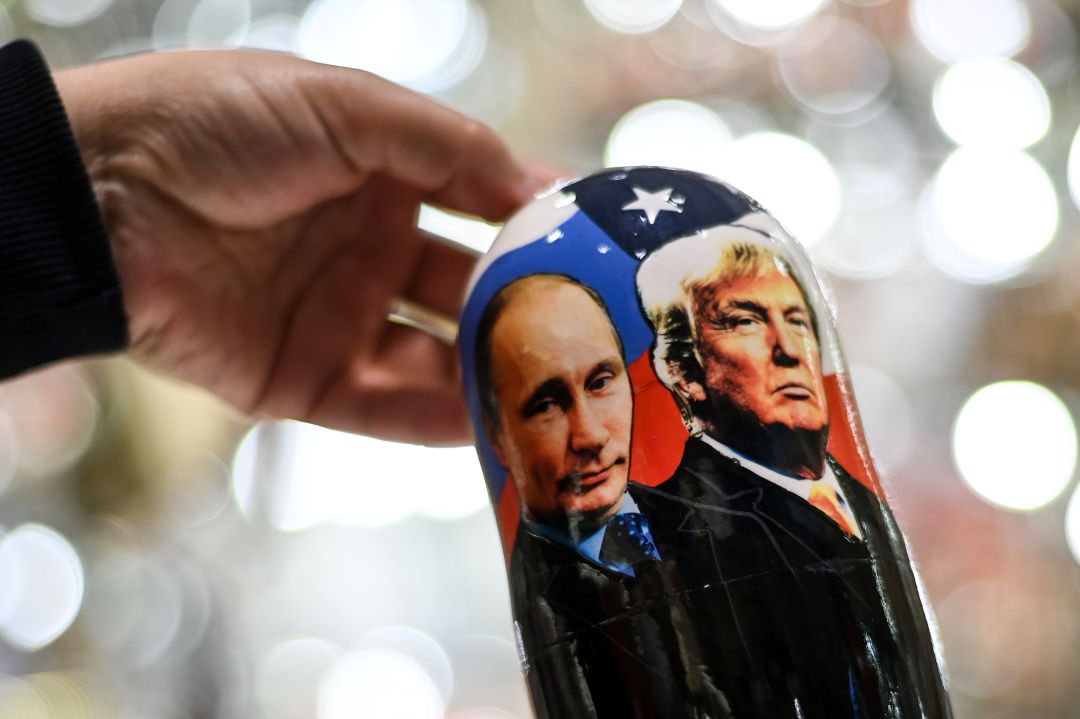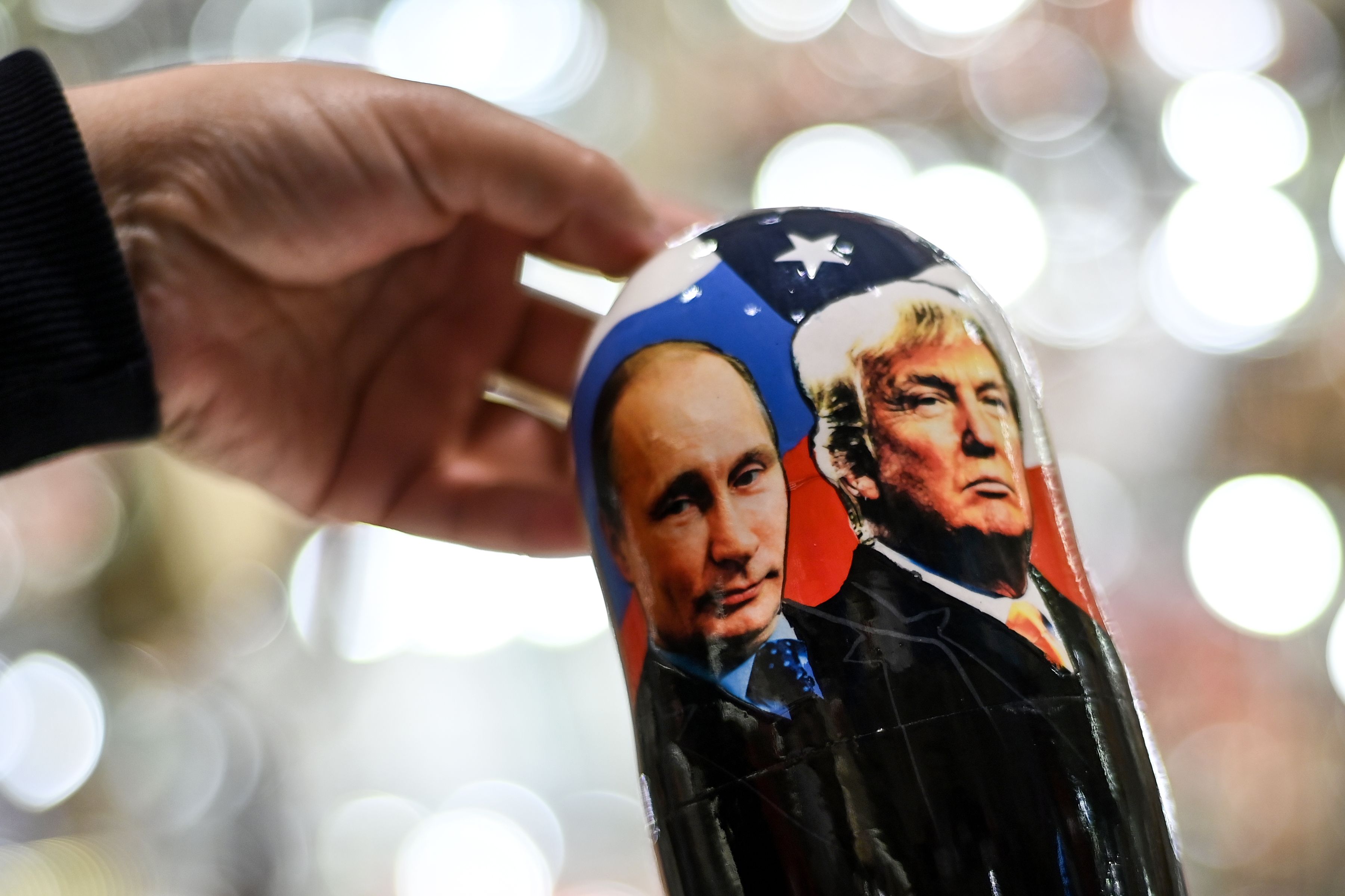For the supposed information operations masterminds who can bend American politics to their will, the Russians seem no better at predicting the outcome of the elections than the rest of us. But they are still going to make the best of the current uncertainty.
When Donald Trump was elected in 2016, the nationalist showman-politician Vladimir Zhirinovsky opened champagne, toasting ‘a new domestic and foreign policy in the US’ and ‘a speedy improvement of US-Russia relations.’ The foreign policy professionals, though, were scrambling, caught off guard. They had treated Trump as one of a number of weapons to launch against the presumed next president, Hillary Clinton. They never expected him actually to win. In a classic piece of mirror-imaging, they had assumed American politics was almost as stage-managed as Russian ‘elections’. As one confidently told me beforehand, ‘the American establishment will never let a Trump be elected.’
Well, they did and he was. But Zhirinovsky only got half his wish: radically new US policy, yes, but none of the improvement in relations. Actually, quite the opposite. For all Trump’s warm words about Putin — which, in fairness, he lavishes on pretty much every autocrat, kleptocrat and thugocrat he meets — and the undoubted damage he has done for America’s standing in the world, this has hardly been to Moscow’s advantage. Even Zhirinovsky has had to admit ‘he has done nothing good for us’.
The Russian media are falling back on a favoured staple: anarchy in America
The USA has unilaterally pulled out of an arms treaty that meant much to Russia; it is implacably opposed to the Nord Stream 2 gas pipeline; it has scared European states, which for years were happy to freeload off Uncle Sam’s defence guarantees, into spending more on their militaries, and it has placed economic sanctions on Russia that are set to stay for the foreseeable future. Some of this is down to Trump directly — much is down to a Congress that Trump wasn’t prepared to fight on Putin’s behalf.
However much partisan critics painted Trump as ‘Putin’s puppet’, Moscow did not feel that comfortable with him, especially because of his erratic nature. The Russians, after all, always relied on American predictability. This helps explain why, as a Biden victory looked probably, the Russians actually seemed rather comfortable with this. By no means enthusiastic, but accepting.
A string of the usual foreign policy commentators, while accepting no ‘re-re-set’ was on the cards, suggested it was time for a shift in relations. Putin himself downplayed the notion that Hunter Biden had been involved in corrupt deals in Ukraine — one of Trump’s main attacks on his rival — and even made a rather surreal parallel between the Democrats and the old Soviet Communist Party, suggesting they sprang from the same social democratic roots. (Which is vaguely true, but any attempt to parallel Lenin and FDR might be a bit of a stretch.)
It looked as if they had made their prediction and were writing the Donald off. Then this morning, the world was looking rather different.
Once bitten, twice shy, the Kremlin is for the moment keeping quiet, unwilling to offer hostages to fortune. Instead, the state and state-adjacent media are falling back on a favoured staple: anarchy in America.
After weeks of often quite measured and balanced analysis, a new note of excitement (and sometimes schadenfreude) is evident. The TV news showed boarded-up businesses in preparation for mayhem, and the tabloid Komsomolskaya Pravda spoke of ‘riots’ and clashes with police, while Izvestiya warned of worse to come: ‘Americans have already poured into the streets of major cities and are preparing to riot against the election results.’ Even the stolid government newspaper Rossiiskaya gazeta, while reporting the race relatively neutrally, did make a point of noting that the US Postal Service seemed to have lost 300,000 ballots.
No more able to call the election than the rest of us, the Kremlin has instead opted to focus on a domestic message: democracy is messy, too dangerous not to need a certain amount of control. In the past, it was Ukraine to which they turned, cherry-picking the news and the images that fitted their narrative. Then, European protesters like the gilets jaunes of France, and artfully distored representations of the protesters in Belarus were used to hammer home the message that Russians ought to be glad with what they’ve got.
At present, though, it is the self-proclaimed ‘land of the free’ that is giving the autocrat in the Kremlin all the footage and talking points his propagandists may need.








Comments